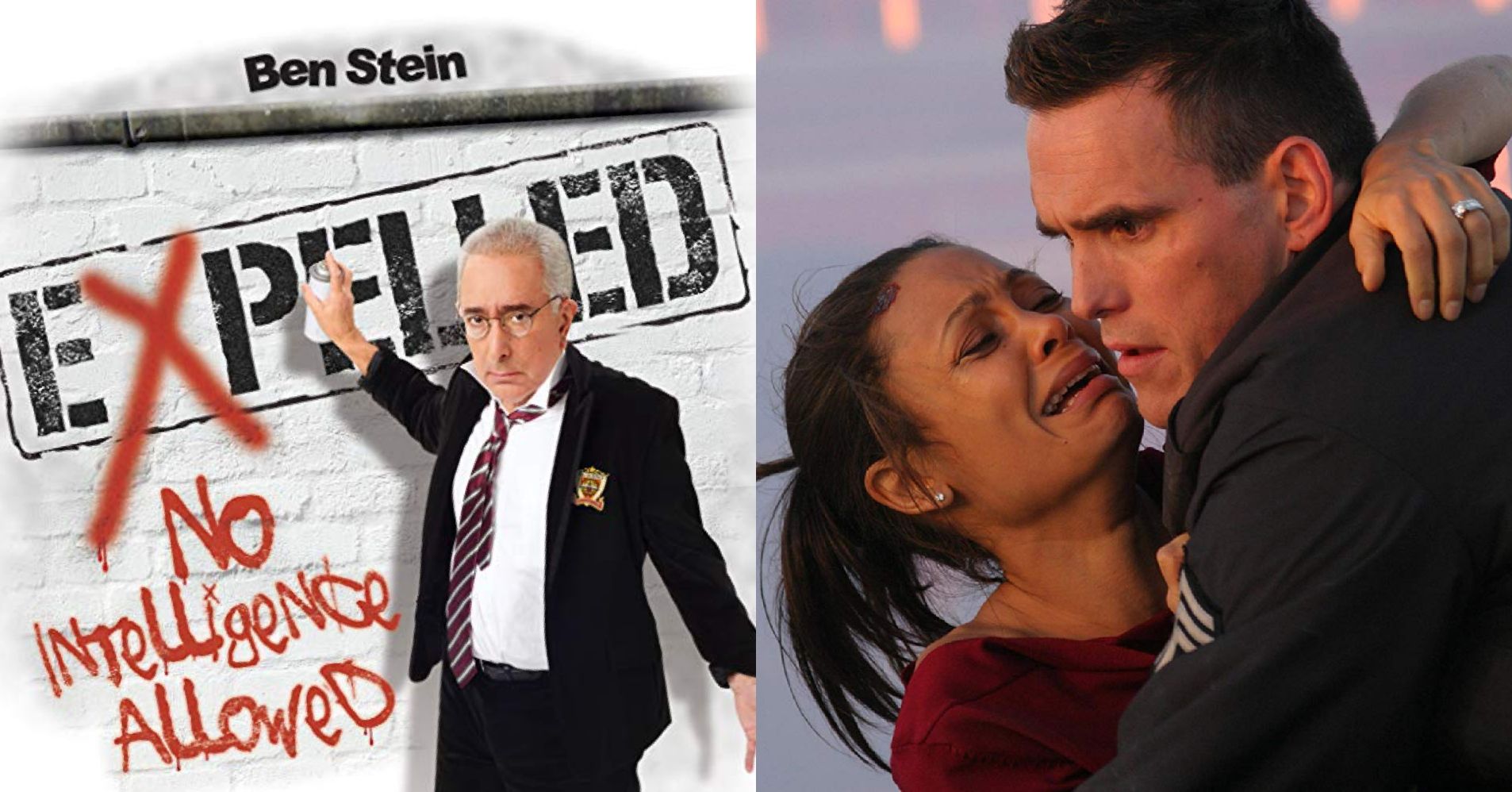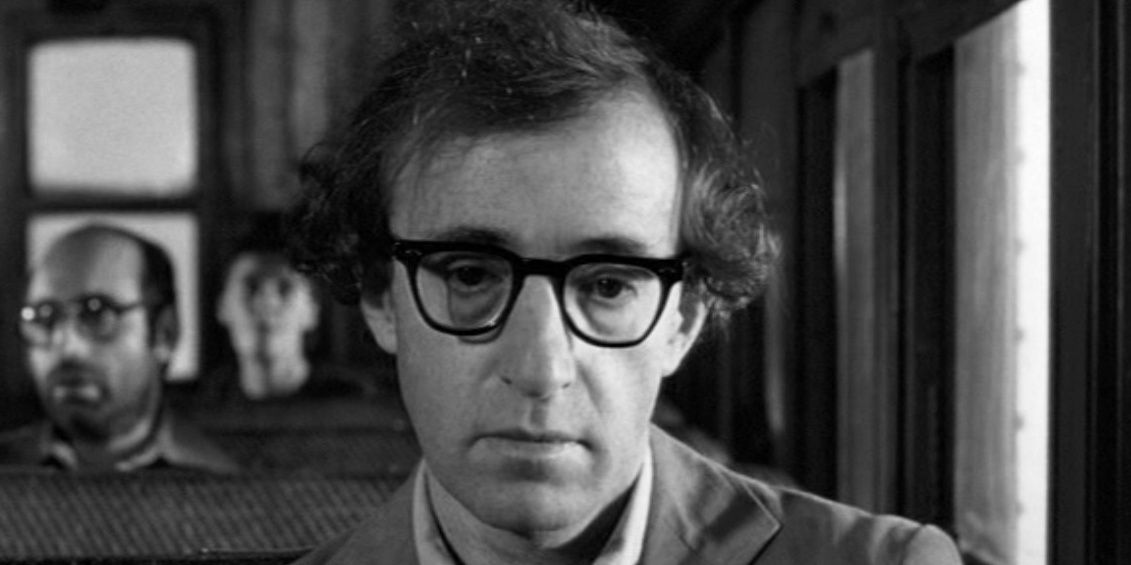Normally, the idea of a director insulting their audience with a film would be career suicide. Yet, over the years, a few daring directors have done just that, with mixed results. While some movies have managed to get away with roasting their viewers, this usually results in backlash from both fans and critics, and could even end a filmmaker’s career.
10 Brilliant Movies Audiences Hated At First
Below are ten movies that were made without any regard for their audience’s thoughts and feelings. Please note, this list contains discussions of race, religion, and politics that do not necessarily reflect the views of Screen Rant.
Stardust Memories (1980)
Before he became embroiled in allegations of sexual misconduct, Woody Allen was a film buff darling, whose movies were lauded for their sharp wit and innovative cinematography. After winning Best Picture for 1977’s Annie Hall, Allen followed it up with Interiors, his first non-comedic film. The film was met with mixed reviews and was not nearly as successful as Allen would’ve liked.
Two years later, Allen would release Stardust Memories, a film about a successful comedic director who is pressured into making funny movies after his first drama tanks. While Allen claimed that the movie is not an allegory, it’s impossible to ignore the thinly veiled contempt he feels for an audience that rejected his attempt at serious drama.
Vice (2018)
A biopic of former Vice President Dick Cheney, Vice was a hit with critics and was nominated for a few Oscars. But that didn’t stop detractors from calling the movie out for doubting the intelligence of its viewers. In addition to feeling the need to remind viewers on commonly known events that most of them probably remember, a mid-credit sequence seems to confirm the filmmaker’s contempt for their audiences.
10 Blockbusters Fans Loved (But Critics Hated)
The scene shows a fight breaking out during a fake test screening, between two viewers who identify conservative and liberal respectively. During the brawl, two disinterested screeners discuss the next Fast and the Furious movie. While it’s possible to defend the scene as a critique of modern American society, many interpreted it as a mean-spirited jab at the masses.
Crash (2004)
Often called the worst movie ever to win Best Picture, Crash has been criticized for its message on race relations in the United States. The assertion that everyone can be racist at times isn’t entirely unfounded, but the way the movie presents that message sometimes rubs audiences the wrong way. Crash has been accused of oversimplifying complex themes and ideas, and that it relies on baiting tactics and melodrama to manipulate viewers. While supporters of would say otherwise, Crash still evokes strong opinions and hot tempers even fifteen years after its release.
The Hate U Give (2018)
While Crash presented a simplified view of race, The Hate U Give takes no prisoners in its raw, unapologetic message about the black community’s relations with the police. Based on the novel of the same name, the movie is about a black girl who witnesses her friend, an unarmed black man, getting fatally shot by a white police officer.
The 10 Most Polarizing Movies Of The 2010s
Of course, such a film would no doubt have detractors, who’d claim that the film’s depiction of white people and police officers is too one-sided. It’s obvious that The Hate U Give was intended to prod viewers into action, and the reaction was always going to be mixed.
Noah (2014)
Director Darren Aronofsky has made a career out of shocking and angering his audiences. For his first foray into big-budget blockbusters, 2014’s Noah presented an interesting take on the biblical story from the book of Genesis. The result, which took many liberties with the original text, angered Christians and biblical literalists alike. Aside from those complaints, one aspect of the film that managed to enrage audiences was the film’s stance on the consumption of meat. In the movie, Noah and his family are vegetarians, while the sinful population is seen consuming animal products. This lead many to accused the film of trying to push alternative dietary beliefs on audiences. It doesn’t help either that the movie equates meat eaters with cannibals, a distinction that many found heavy-handed.
Branded (2012)
This little known Russian-American sci-fi flick has become a viral sensation among the ‘so bad it’s good’ crowd. A movie about corporate brands embodied as literal monsters, the movie was marketed as a critique of consumer culture. Instead, the movie received backlash for allegations of fat shaming. These accusations revolve around a subplot in the movie, involving a fast food company conspiring to promote body positivity as a means of boosting sales. Regardless of one’s belief in the body positivity movement, there’s no denying that Branded’s attempt at fat shaming is just plain to mean spirited.
Death Of A Nation (2017)
If someone were to ask a random person’s opinion on conservative documentarian Dinesh D’Souza, they’re likely to get either an extremely positive or negative response. A constant presence among the American right for nearly thirty years, D’Souza’s aggressive style of political commentary has earned him both admiration and disdain along partisan lines. But it was his 2017 documentary, Death of a Nation, that really fueled the flames of division among cinema-goers.
In the movie, D’Souza criticizes the Democratic Party and pretty much everyone who votes for them, relying on ad hominem attacks to drive his point. Attacking a politician or political party is one thing, but going after average people because of their views is rarely advised. It doesn’t help either that D’Souza has been accused of cherry-picking his facts and going after low-hanging fruit, rather than trying to present a reasoned argument.
God’s Not Dead (2014)
It can be argued that every movie released by Pure Flix, an evangelical Christian film studio, aims to chastise their ideological opponents. But their legacy of lashing out at anyone who disagrees with them can be traced back to God’s Not Dead, their first box office hit. A movie about a Christain college student debating the existence of god with his atheist college professor drew the ire of audiences of all faiths.
The professor, played by Kevin Sorbo, has been called a strawman because of his cartoonishly evil persona, that seems to suggest that all atheists are and secretly hate God. While God’s Not Dead certainly had supporters, it nonetheless angered audiences everywhere, including some Christians who feared the movie did more harm than good.
Expelled: No Intelligence Allowed (2008)
Easily one of the most reviled documentaries in recent memory, Expelled stars Ferris Bueller alumni Ben Stein, as he attempts to prove that proponents of intelligent design (i.e. that the world was created by an intelligent god) are being oppressed by the scientific and academic communities.
In addition to relying on dubious evidence to back up its claims, the movie goes overboard in its attempt to vilify Darwin’s theory of evolution and equate its supporters with Nazies. Considering the widespread belief in evolution, even among Christians, the movie attacks a substantial chunk of the population. And people wonder why they don’t see Ben Stein anymore.
Birdman (2014)
Attacking someone for their personal beliefs is ill-advised as it is, but questioning the intelligence of an entire audience based on their movie preferences is a level of pretentiousness in and of itself. The movie stars Michael Keaton as a washed-up actor trying to direct a Broadway play, decades after playing a superhero named Birdman.
An obvious allegory to Keaton’s tenure as Batman, the movie roasts big-budget Hollywood blockbusters and the people who see them, dismissing modern day film audiences as idiots who don’t understand good art. This is made obvious when Birdman himself implies that moviegoers just care about explosions and mindless violence, rather than the high minded material Keaton’s character is trying to promote. While the movie spoke to a small contingency of audiences feeling blockbuster fatigue, it also managed to alienate nearly everyone who saw it.











